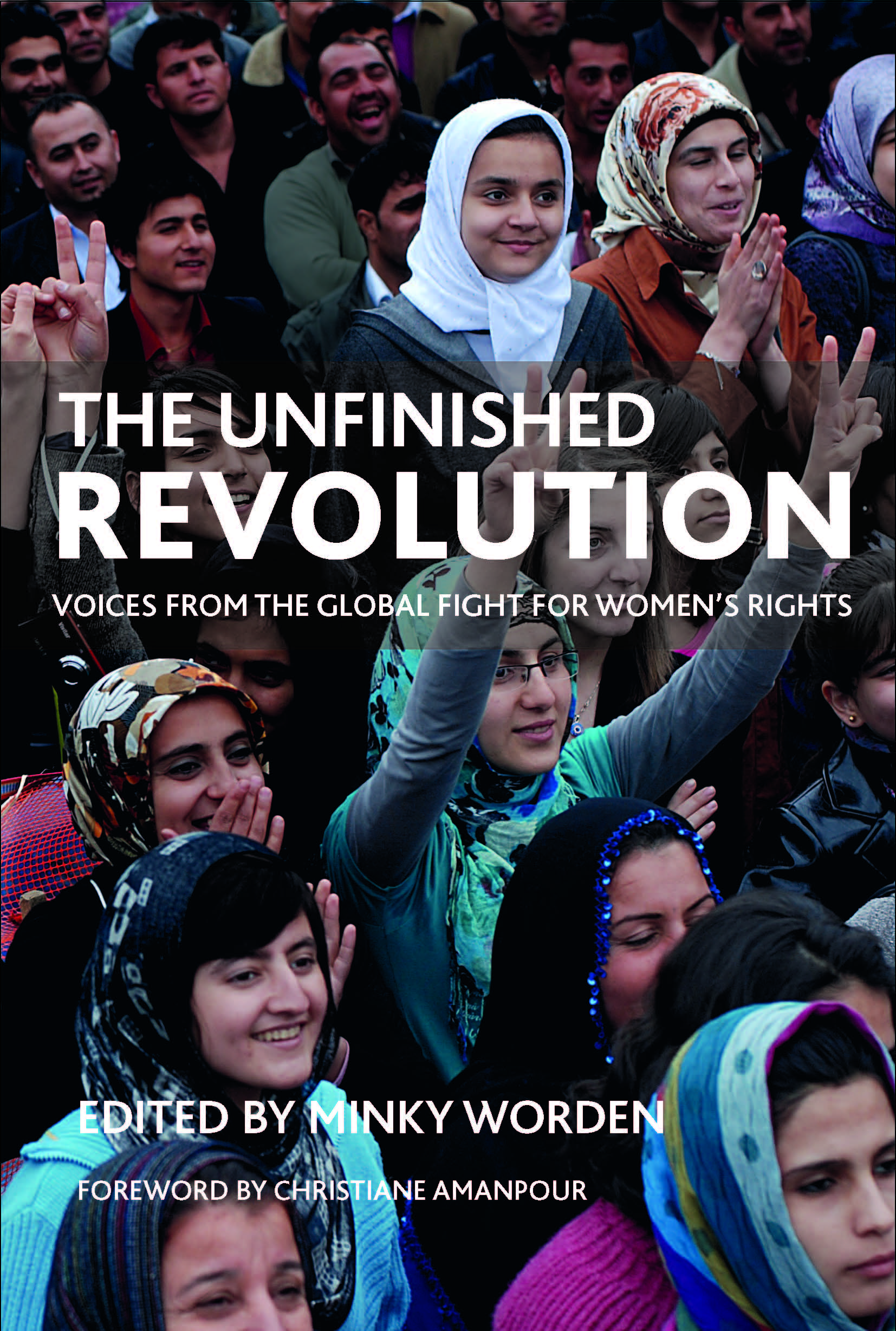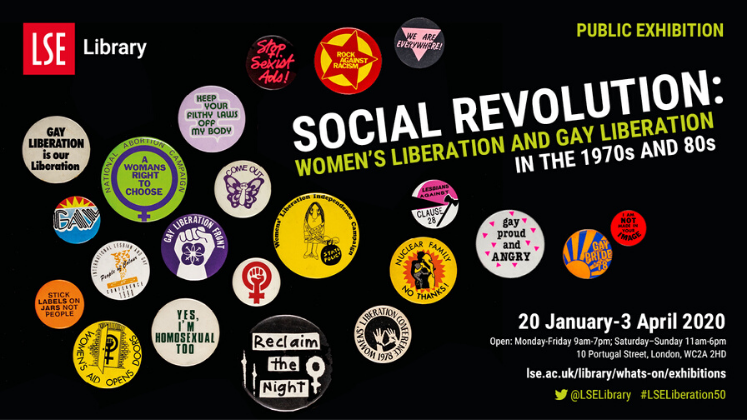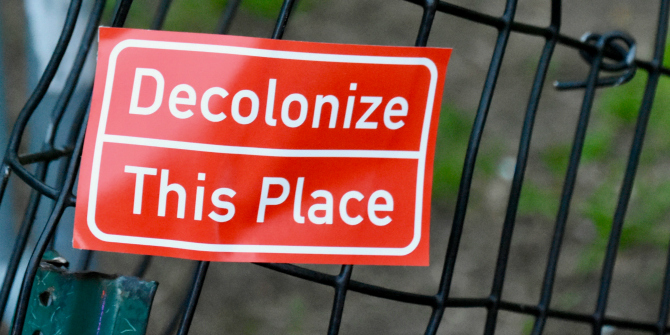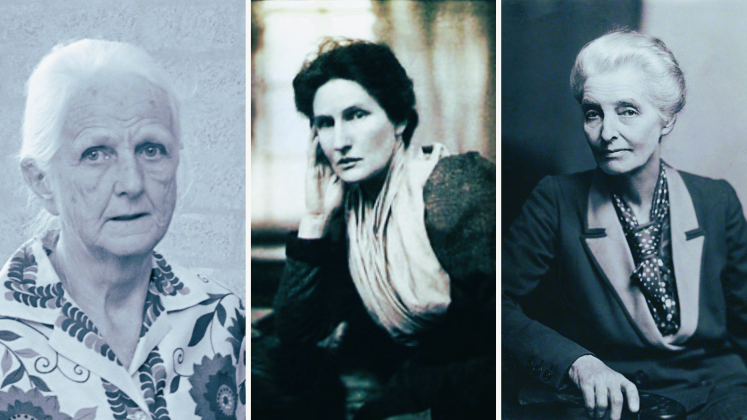 Women’s rights have progressed significantly in the last two decades, but major challenges remain in order to end global gender discrimination. The Unfinished Revolution outlines the recent history of the battle to secure basic rights for women and girls, including in the Middle East where the hopes raised by the Arab Spring are yet to be fulfilled. Featuring essays by more than 30 writers, activists, policymakers and human rights experts, Natalie Novick concludes that the book’s thoughtful organization and structure make it easily accessible to anyone interested in human rights, women’s issues or global inequalities.
Women’s rights have progressed significantly in the last two decades, but major challenges remain in order to end global gender discrimination. The Unfinished Revolution outlines the recent history of the battle to secure basic rights for women and girls, including in the Middle East where the hopes raised by the Arab Spring are yet to be fulfilled. Featuring essays by more than 30 writers, activists, policymakers and human rights experts, Natalie Novick concludes that the book’s thoughtful organization and structure make it easily accessible to anyone interested in human rights, women’s issues or global inequalities.
 The Unfinished Revolution: Voices from the Global Fight for Women’s Rights. Minky Worden. The Policy Press. July 2012.
The Unfinished Revolution: Voices from the Global Fight for Women’s Rights. Minky Worden. The Policy Press. July 2012.
At 15, Elise was taken from her home by soldiers to be kept as a sex slave. Stripped naked and trapped in a hole, she was raped daily before escaping six months later. Elsie’s experience unfortunately is not isolated in her home of the Democratic Republic of the Congo. The UN has estimated over 200,000 women and girls have been subject to sexual violence in the DRC since 1998. However, so often when comprehending the magnitude of these injustices, individual stories like Elise’s are lost.
The Unfinished Revolution brings Elise’s experience and many others like hers to light, by telling the stories of those working on the forefront of the global fight for women’s rights. Edited by Minky Worden, the Director of Global Initiatives for Human Rights Watch, this text draws upon a remarkable selection of passages by some of the world’s most important and distinguished advocates for women and girls. With contributions from Nobel Laureate Jody Williams, former Irish President Mary Robinson, alongside work by academics, policymakers and other tireless campaigners, this text presents a multifaceted view of the current state of women’s inequality worldwide.
The word revolution, is used in the title in its most literal sense, as an effort seeking change from one power structure to another. The current systems of patriarchy and the structures that have maintained unequal rights for women worldwide are long standing. The goal of this book is to recognize how entrenched these systems are, but also to expose the cracks in the system and show how these systems can be dismantled. As Christine Amanpour relates in the introduction, this book aims to serve as a “road map” for solutions that can work to improve human rights all over the world. Taking a global approach, this text gives attention to all world regions and addresses some of the most pressing issues for women and girls worldwide, from domestic violence, to conflict, to economic inequalities, political constraints and the unequal consequences of medical care. Divided into eight sections and succinctly organized by theme, each chapter gives the perspective of a different campaigner or activist the opportunity to contextualize the systemic structures of inequality through narrative.
Written from the individual perspectives of its over thirty contributors, this text excels at bringing the human story to the forefront. In a piece on forced marriage by Georgette Gagnon, the director for Human Rights at the United Nations Assistance Mission in Afghanistan, we meet seventeen year old Samira from Afghanistan, who was sold by her father and later by her husband to pay familial debts. Through extensive research across Afghanistan, Gagnon’s team found that traditional practices of child marriage, forced marriage and the selling of daughters remain commonplace in the region. Unfortunately, there also remains few alternatives for these women, and nowhere to turn should they flee from this violence.
The ineffective and absent responses to systemic injustice and violence against women are echoed in many pieces in the text, with cases ranging from Los Angeles, to Nepal, to Iraq and China. Gauri van Gulik tells the story of Selvi, a young mother from Turkey who was left without recourse after authorities turned a blind eye to the horrible beatings she received at the hands of her husband, despite her pleas for help. Elaine Pearson shows that even when women are rescued from cases of injustice, sometimes the outcome is not always much better than where they were before. Champa, from Nepal, describes her horrifying experience of being trafficked as a young girl, that upon rescue, was forced into a detention like “treatment” center that subjected girls to physical beatings, malnutrition and enslavement.
However, this text is not just an exercise in storytelling. Each of these narratives is used to put the greater systemic outcomes of inequalities into context. The Unfinished Revolution provides a snapshot account of the present state of women’s rights, an account that its authors hope to improve in the future. What is made most clear through these narratives is not actually the presence of inequality, injustices and violence, but rather the uneven or in many times absent responses to the existence of these injustices, further illustrating the hostile environment these human rights campaigners are working within. One example of the challenges faced by those working on the forefront of women’s rights is shown in the case of Nadia, a NGO worker from Afghanistan. Rachel Reid, a senior regional adviser for the Open Society Foundation, recounts how Nadia, had to quit her job in response to a Taliban letter on her doorstep threatening her life if she continued to work. Unfortunately, cases like Nadia’s are all too common.
The harsh realities faced by the human rights campaigners illustrated in the text shows the “revolution” for women’s rights remains unfinished. Indeed, a more developed, collective consciousness for global women’s rights as called for in the conclusion seems far away. But by shining a light on the work being done around the world, and recognizing those who work so hard against such odds, this text shows this is a revolution that we haven’t given up. The Unfinished Revolution succeeds at presenting the global fight for women’s rights in a way that relevant to a wide variety of audiences. By putting names, stories, and even pictures to the women affected by these worldwide inequalities and injustices, The Unfinished Revolution makes the challenges faced by women and girls around the world real. The message of this text is clear, and its thoughtful organization and structure make it easily accessible to anyone interested in human rights, women’s issues or global inequalities. This volume would additionally make a brilliant accompaniment in an academic setting, especially for courses on human rights, inequalities, stratification or women’s studies.
……………………………………………………………………………………………………………………………………….
Natalie Novick is currently pursuing a PhD in Sociology at the University of California, San Diego. Her research examines the outcomes of cultural and structural inequalities on women’s representation in government and foreign affairs. In 2009 she received her M.Sc. in Comparative European Politics from Trinity College, Dublin. Prior to her graduate studies she worked in legislative affairs in Washington, DC and Phoenix, Arizona. You can find her on twitter @genderpolitics. Read more reviews by Natalie.








3 Comments